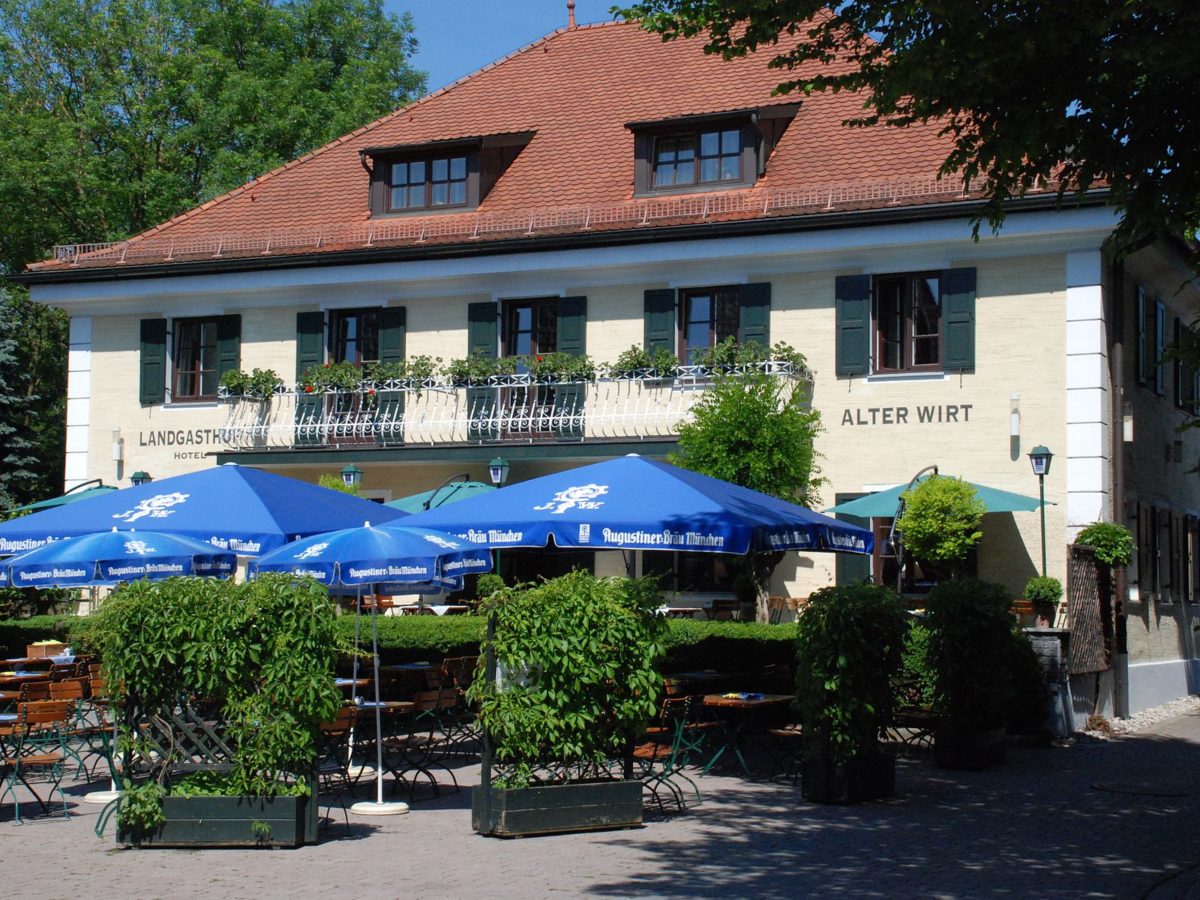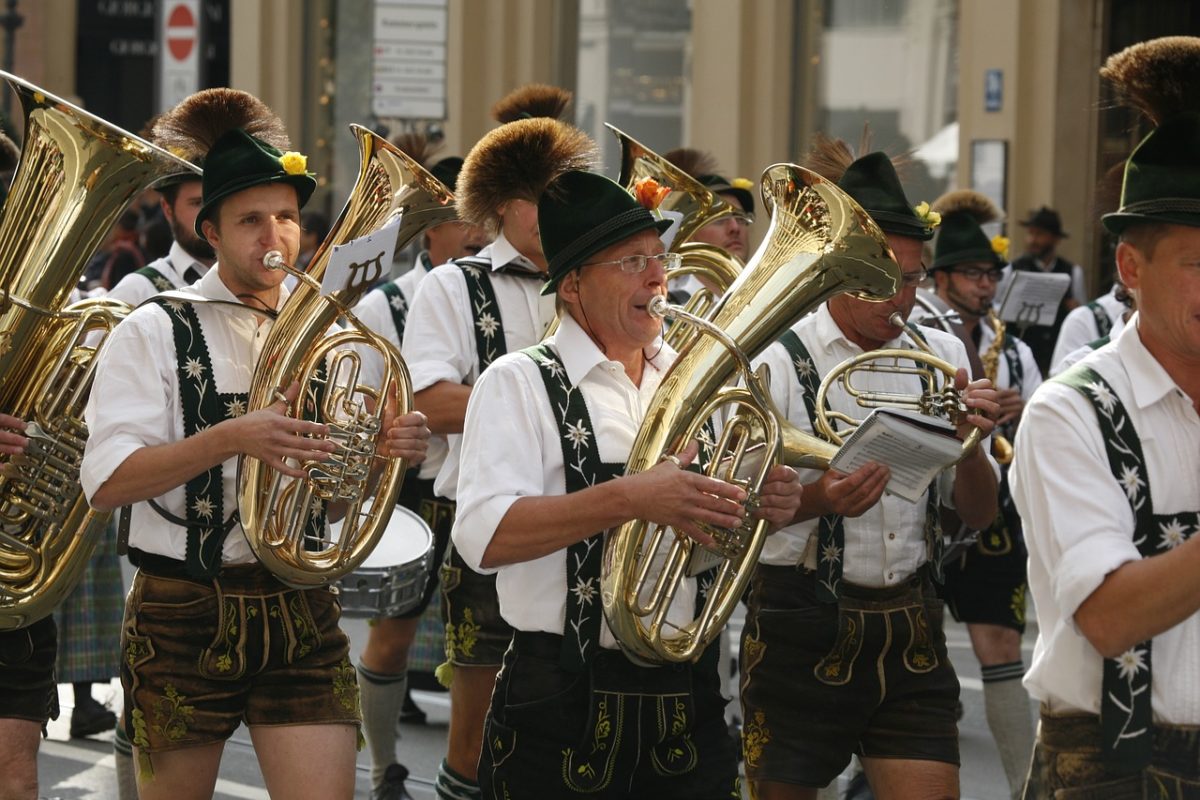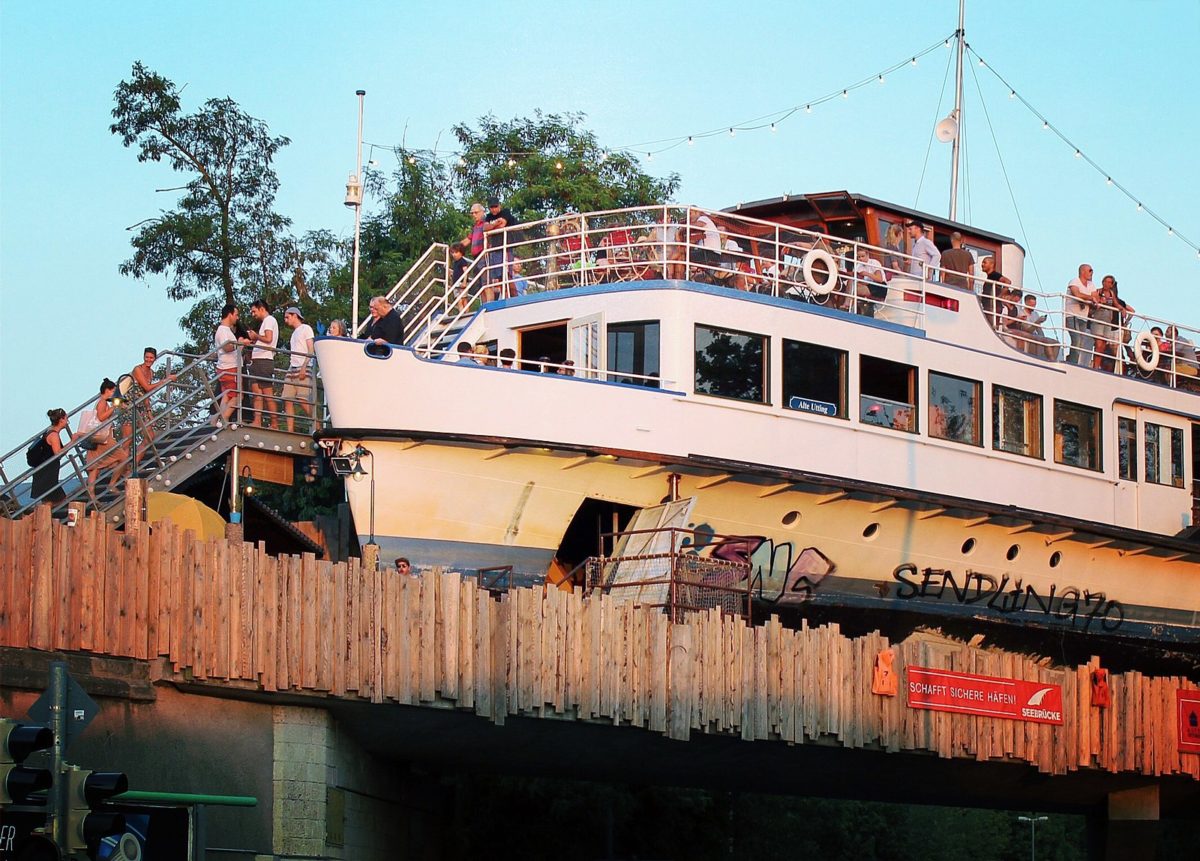Every year, 6 million people drink 7 million liters of beer in Munich at Oktoberfest. The classic Bavarian festival is a bucket list event for anyone looking to sample quality pints, soak in traditional Bavarian culture, and enjoy the city of Munich in the fall.
One not-so-expected element of Oktoberfest? It is one of the greenest festivals and has been since the early 90s when the city banned the use of disposable tableware, reducing its waste by over 90%. Oktoberfest won an Environmental Oscar in 1997. Since 2000, all public areas of the festival (streetlights, toilets, etc.) have been powered through 100% renewable sources and 60% of independent vendors use renewable resources today. The beer, of course, is local, and a large portion of the food served is organic and local, with many vendors sourcing from nearby bio-farms, such as Herrmannsdorfer, which provides organic free-range poultry for Schichtl Tavern.
All of Munich’s local breweries serve their special Oktoberfest brews during the 16-day festival. Explore the 14 main stalls and surrounding fairgrounds, not to mention parades and other events. The Marstall tent, for one, combines typical Bavarian fare with vegan and vegetarian options.
Underneath all the lagers and roasts, Oktoberfest is ecologically-conscious and forward-looking in many ways. As the celebration is fast approaching, we explored the chicest and most sustainable places to stay, eat, shop, and experience Oktoberfest in the changing city. Here is everything you need to know to hit up Oktoberfest in a conscious, green, and local way.
Where to stay:
One option is Alter Wirt, a cozy, family-run, traditional Bavarian property with a focus on sustainability and its own organic garden. Biohotel Schlossgut Oberambach is a beautiful option outside of the city in the Bavarian forests and meadows. It operates on 100% renewable energy and is perfect for travelers who want something quieter and more removed. If you are on a budget, there is even a green hostel, 4You Hostel and Hotel Munich, which doubles as a non-profit and utilizes solar panels, green furniture, and organic produce.
What to wear:
If you’ve ever seen a photo from inside the Oktoberfest tents, you’ve seen locals and visitors wearing traditional lederhosen and dirndls. If you want something particularly special, local tailor Svenja Jander is known for beautiful made-to-order dirndls inspired by traditional Bavarian ware. Coco Vero makes elegant, modernized takes on old school dirndls. And for those in search of a sustainable garment, Celine Vogel provides lovely, eco-conscious dirndls made entirely from eco-certified cotton, silk, and lace, all manufactured in Bavaria with intricate lace detailing in the back. Greenline by Angermaier is another nice, sustainable, and more affordable option—they are eco-certified, available online, and use rhubarb leather in place of animal products.
For your non-Lederhosen sartorial needs:
Bechloch recommends Coco Monaco, a cool concept store featuring local fashion and lifestyle brands from Munich, and Sois Blessed, an airy fashion, lifestyle, and interior shop which includes a day bar, flower shop, and helps support a South African township through donation and fair trade sales.
Where to eat outside of the festival:
Munich boasts quite a few new and exciting vegetarian, vegan and farm-to-table dining options. For a true fine dining experience, try Tian, an inventive Michelin star vegan and vegetarian restaurant serving all seasonal, local, and organic creations in a calming setting. Alte Utting is a former ship that has been put on top of a bridge and offers different food stalls, many of them with organic food—it’s also great for a sundowner when the weather is nice. Julius Brantner Bakery is another key recommendation. Bread is obviously a big thing all over Germany, but this organic baker is particularly stylish. Be sure to check out the glass window where you can watch Julius bake.
Where to relax:
After a few days of exploring the grounds and drinking, escaping to one of the city’s green spas is more desirable than ever. Cremebar spa is great for body treatments and their store sells amazing organic skincare brands, including The Glow, a new sustainable skincare line from Munich. You can even bring your own containers there and fill them with bath salts and organic oils on tap. Tobs Beauty, a small local spa and shop, offers wonderful holistic treatments with all-natural cosmetics as well.
Where to escape after the festival:
Mizu Onsen Spa is a really nice Japanese spa with a great sushi bar on Lake Tegernsee. It’s perfect if you need a break from the city and detox from Oktoberfest.






